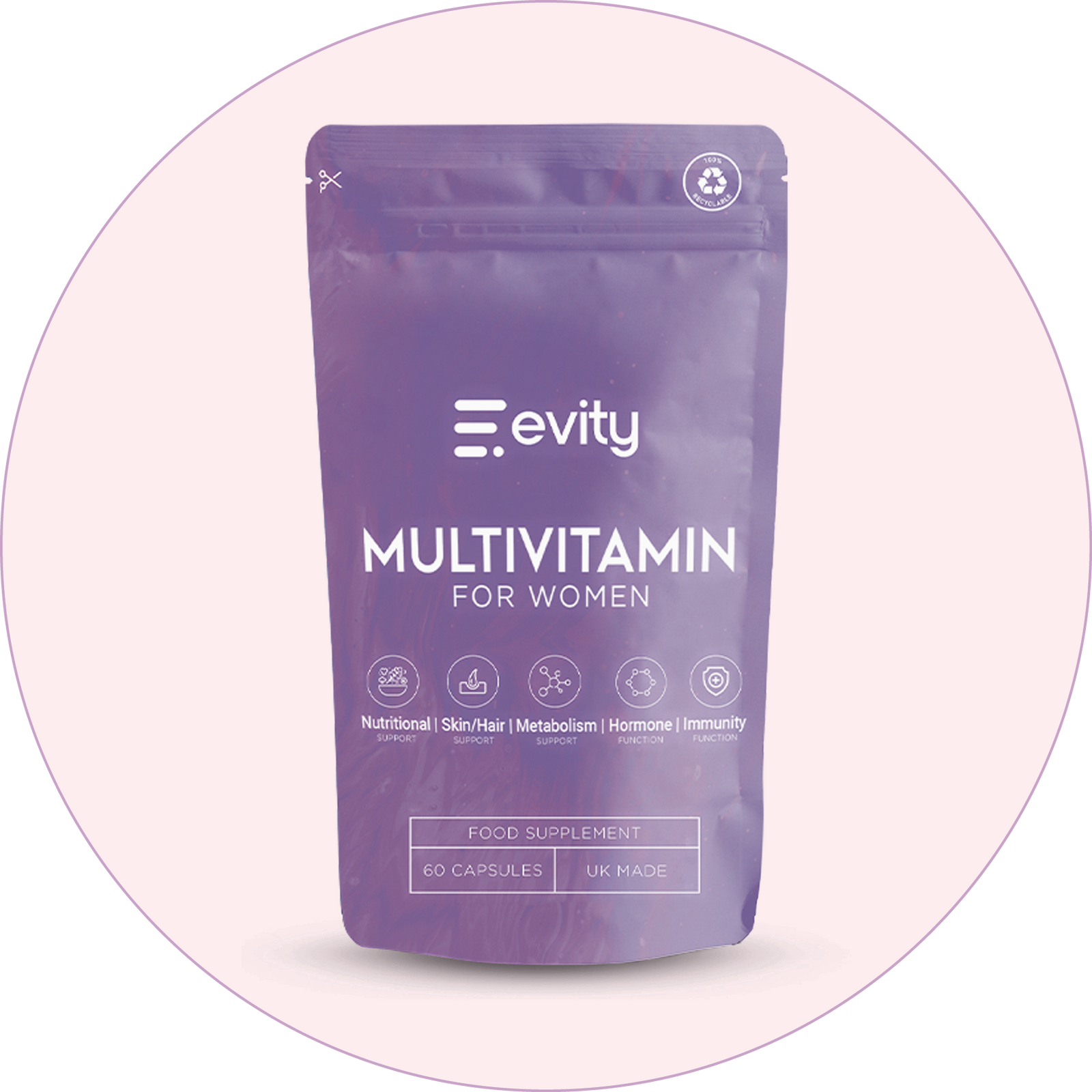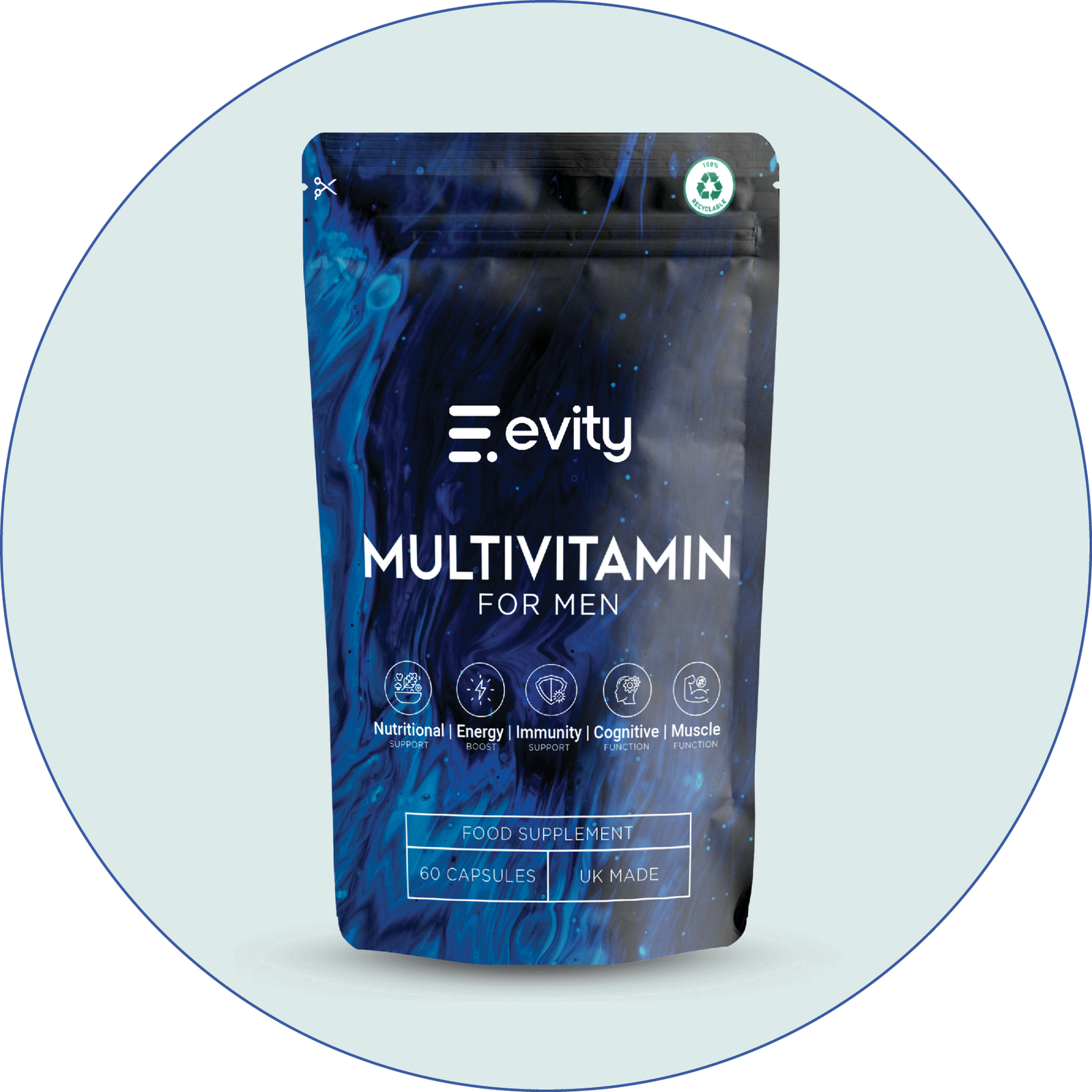Benefits of Vitamin D in the body
Deficiency and insufficiency are common in countries within the northern hemisphere, so it’s really important to keep your levels topped up. Public Health England recommends that everyone in the UK should take a supplement containing vitamin D daily.
Immunity
Vitamin D plays a major role in the immune system, both the innate (the immune defences we’re born with) and adaptive (immunity that white blood cells are in control of) need it to function at it’sbest (1). Low vitamin D status can lead to more severe respiratory infections, especially inwinter (2).
Mood
Vitamin D deficiency and insufficiency are common in those suffering with both anxiety and depression, in which casesupplementation can help to improve levels and can have a significant effect on improvingsymptoms. (3,4,5)
Bone density
Vitamin D also plays a critical role in the development and maintenance ofbone density (6), this is especially important in child development to prevent conditions like rickets and in older adults preventingosteoporosis. (7)
Autoimmunity
Low vitamin D status is often linked to autoimmune conditions, examples of these are Rheumatoid Arthritis, Multiple Sclerosis (MS), psoriasis and hypothyroidism. (1)
Why our form of vitamin D is superior
Vitamin D3 (Cholecalciferol) is the active form, which is best for the body to use and absorb. Here at evity, we only use the only vegan form which is produced from lichen.
Foods rich in vitamin D
Few foods are naturally high in vitamin D as its main source is production in the skin via UV rays, which is why it’s so important to supplement - especially in the winter.
Oily fish with tiny bones such as anchovies or sardines are the best food sources.
Daily recommended intake of vitamin D
Official UK advice from Public Health England states that 400 UI or 10 mcg is minimum for all children over 4 and adults.
Those at higher risk of deficiency are the following groups of people:
- Dark skin
- Spend a lot of time indoors
- Cover up or wear sunscreen when outdoors
- Shift workers
- Have history of insufficiency or deficiency
These groups may need a higher dose so it’s best to get in touch with your doctor for specific advice if this is you!
Latest research of vitamin D
Sleep
Sleep is a cornerstone of health. Essential for balance in the body and our overall wellbeing. The latest studies have linked poor vitamin D levels withsleep disorders. (8)
Hormone balance
Female hormone balance can either be directly or indirectly affected by Vitamin D status. Studies now show that increasing vitamin D status can help fertility,PCOS (9),endometriosis (10)IVF outcomes (11).
COVID-19
Poorvitamin D status has been linked with higher infection rates and severity ofCOVID-19(12,13)
Living longer
Researchers believe there is a link between low vitamin D and all cause mortality. Wondering what this means? It means that if you have good Vitamin D levels you are more likely to live a longer andhealthier life! (14)
Problems with overdose
As fat soluble vitamin toxicity is at risk with too higher daily intake. For vitamin D, 4000 i.u. is considered the maximum upper tolerable limit for safe supplementation.
References:
- https://www.mdpi.com/1422-0067/19/6/1618/htm
- https://eprints.utas.edu.au/33168/
- https://journals.sagepub.com/doi/abs/10.4103/IJPSYM.IJPSYM_160_19
- https://www.ncbi.nlm.nih.gov/pmc/articles/PMC6515787/
- https://www.ncbi.nlm.nih.gov/pmc/articles/PMC7176560/
- https://www.bmj.com/content/342/bmj.c7254
- https://www.sciencedirect.com/science/article/abs/pii/S0378512214004083
- https://www.mdpi.com/2072-6643/10/10/1395
- https://www.tandfonline.com/doi/abs/10.1080/07315724.2018.1431160
- https://www.ingentaconnect.com/content/ben/cpd/2019/00000025/00000022/art00003
- https://link.springer.com/article/10.1186/s12958-018-0324-3
- https://www.tandfonline.com/doi/full/10.1080/10408398.2020.1841090
- https://academic.oup.com/jcem/article/107/5/1484/6459715?login=false
- https://www.sciencedirect.com/science/article/pii/S2213858721002631




